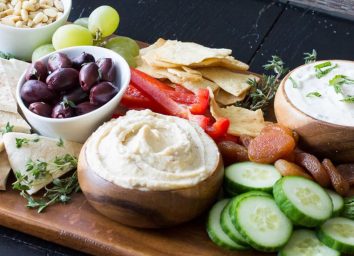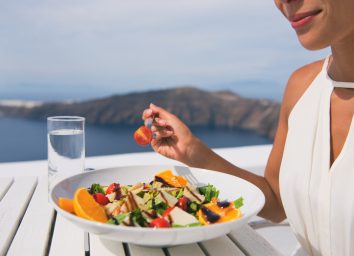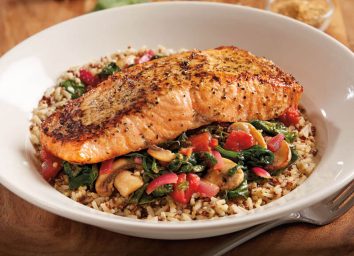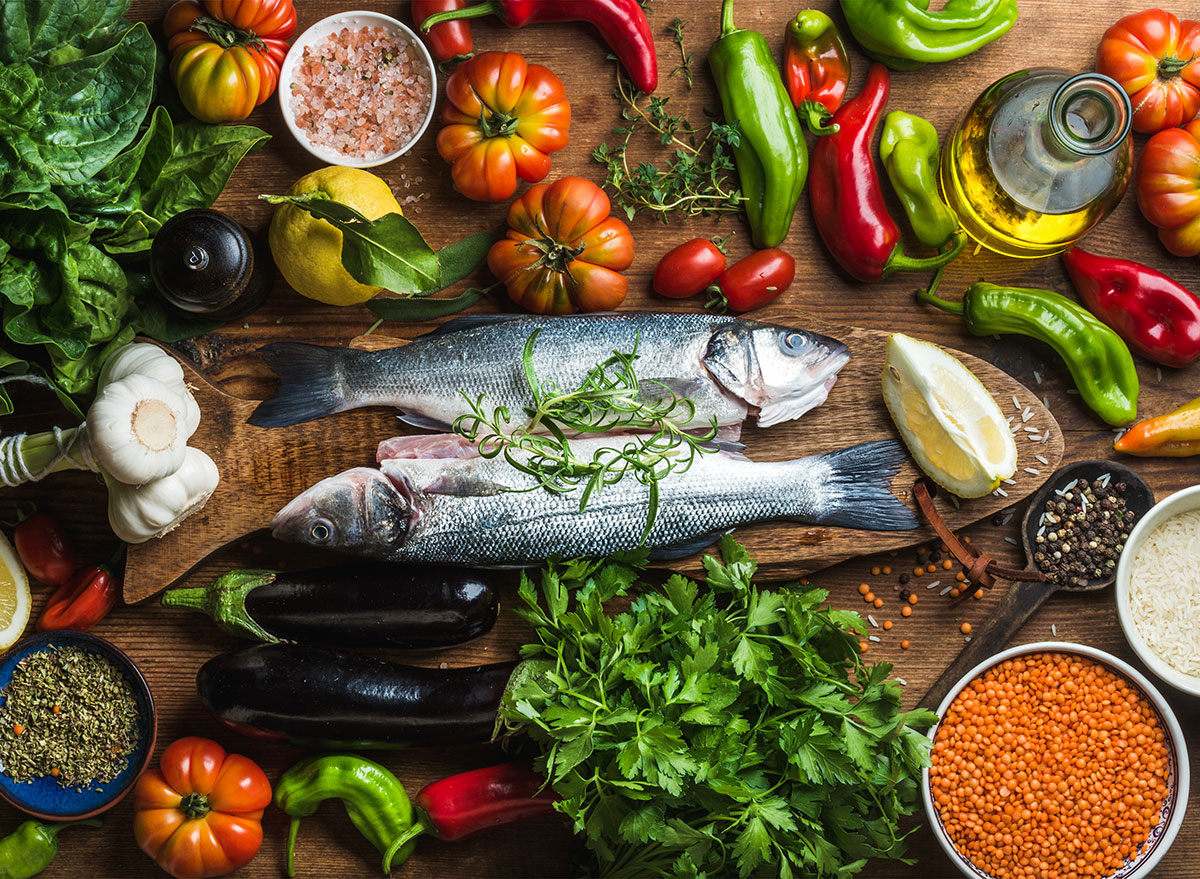
The Mediterranean diet has become one of the most popular diets (even U.S. News & World Report ranked it as the number one "Best Overall Diet" of 2019). So if you decide to start following the Mediterranean diet, what exactly can you eat? Or, more importantly, what should you buy when you're at the supermarket? Well, we decided to take a closer look at this trendy diet and make a list of the foods that should fill up your shopping cart if you want to eat the Mediterranean way.
Here's a guide on how you can follow the Mediterranean diet and which foods to buy.
What is the Mediterranean diet?
Numerous studies have shown that folks from countries bordering the Mediterranean Sea live longer and have less incidence of heart disease, cancer, and other chronic diseases compared to Americans. Based on these studies, the Mediterranean Diet was created to mimic the eating patterns of these countries (think Italy and Spain). However, because there are numerous countries surrounding the Mediterranean Sea (21 to be exact), the diet isn't structured, but more of an eating pattern as is outlined in the 2015-2020 dietary guidelines for Americans, where fish and fruit are eaten in higher amounts compared to a traditional U.S. diet. Because the Mediterranean Sea is the center of these countries, fish is a main source of protein for all the countries, and many dishes also feature whole grains, healthy fats (such as olive oil), nuts, seeds, and lots of fruits and vegetables. Red wine is recommended, in moderation, of course, and staying physically active is part of the lifestyle.
How do you start the Mediterranean diet?
The Mediterranean diet doesn't ban any food groups, which makes it easier to follow than diets that eliminate multiple foods or food groups.
The 2015-2020 dietary guidelines provide an overview of which foods to eat each day, including:
- vegetables (of all colors)
- fruits
- grains (with at least half the grains being whole)
- milk and dairy
- protein (including seafood)
- poultry
- eggs
- nuts
- seeds
- soy products
- healthy oils
- lots of fresh herbs and spices
Smaller amounts of red meat and sweets are fine to have, and only two (compared to three) milk and dairy servings are recommended per day, which is less than the U.S. style eating pattern. Red wine is also encouraged in moderation, with a maximum of one serving per day for women and two servings per day for men. One serving of wine is defined at 5 fluid ounces.
The cost of following the Mediterranean Diet depends on how you follow it. Of course, you can find extra-virgin olive oil, nuts, and fish to be expensive, but you can also pick up these foods in bulk or on sale to help cut costs. You can also opt to spend $60 on a nice bottle of red wine, or just $20, and you can spend your fruit and vegetable dollars on seasonal produce, which is more reasonably priced.
What foods are not allowed on the Mediterranean diet?
There are no foods that are prohibited on the diet. However, red wine should be consumed in moderation. In addition, sweets and red meat are encouraged to be eaten less often. When it does come to red meat, fatty cuts of meat and processed red meats should be eaten sparingly, and remember to choose lean cuts of red meat whenever possible.
Overall, the Mediterranean Diet can be easy to follow if you have the right resources. Dining out can be convenient, too, if you can find a vegetarian option or just stick with ordering a piece of grilled chicken or fish. But if you want to cook most of your meals at home, you can meal prep your Mediterranean meals ahead of time, and there are many healthy convenience foods you can pick up at the market. Which brings us to…
Your Mediterranean Diet Grocery Shopping List
If you're looking to eat the Mediterranean way, you want to combine your home cooking skills with convenience foods. Here are 12 Mediterranean diet groceries to fill your shopping cart.
Filippo Berio Olive Oil
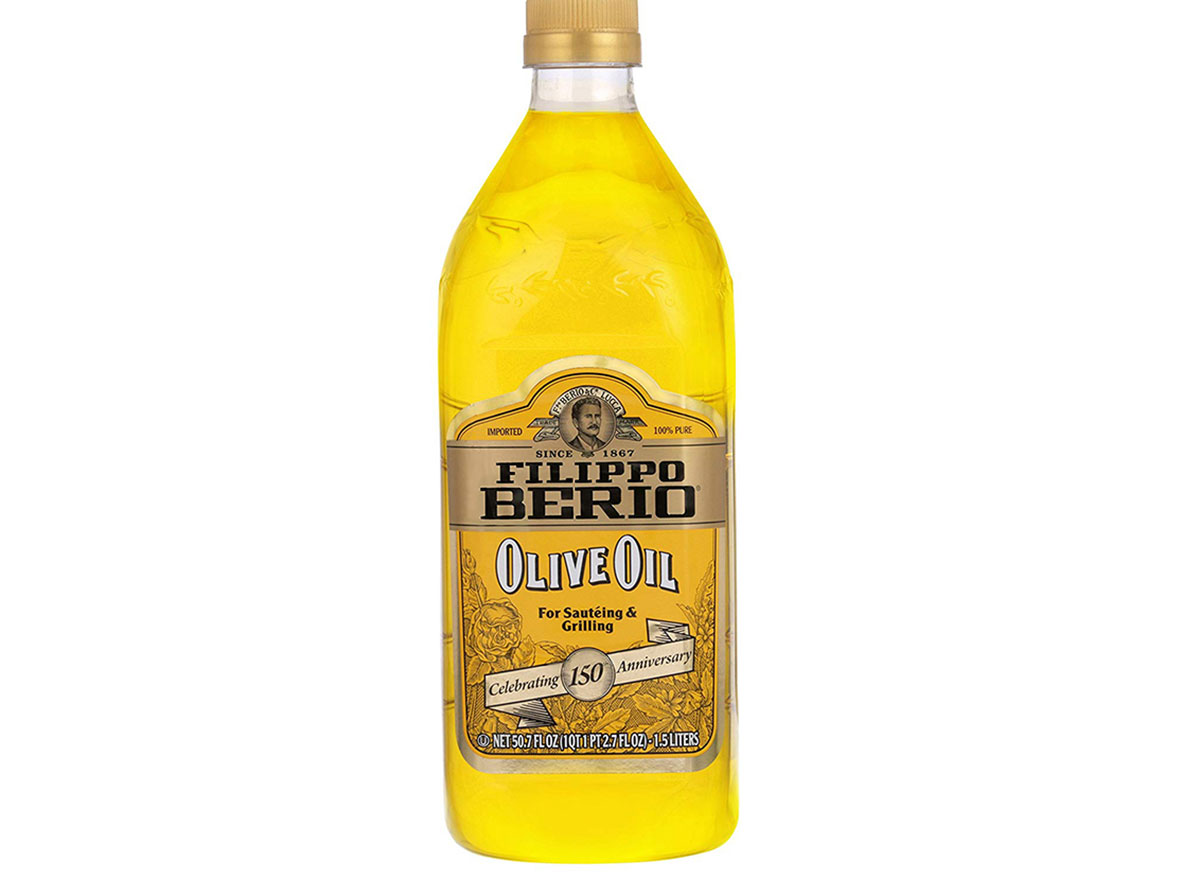
Olive oil has a mild flavor and is versatile in any dish. It can be used in cooking, baking, and to drizzle over vegetables or grains. This olive oil is gluten and GMO-free.
Organicgirl Baby Spinach
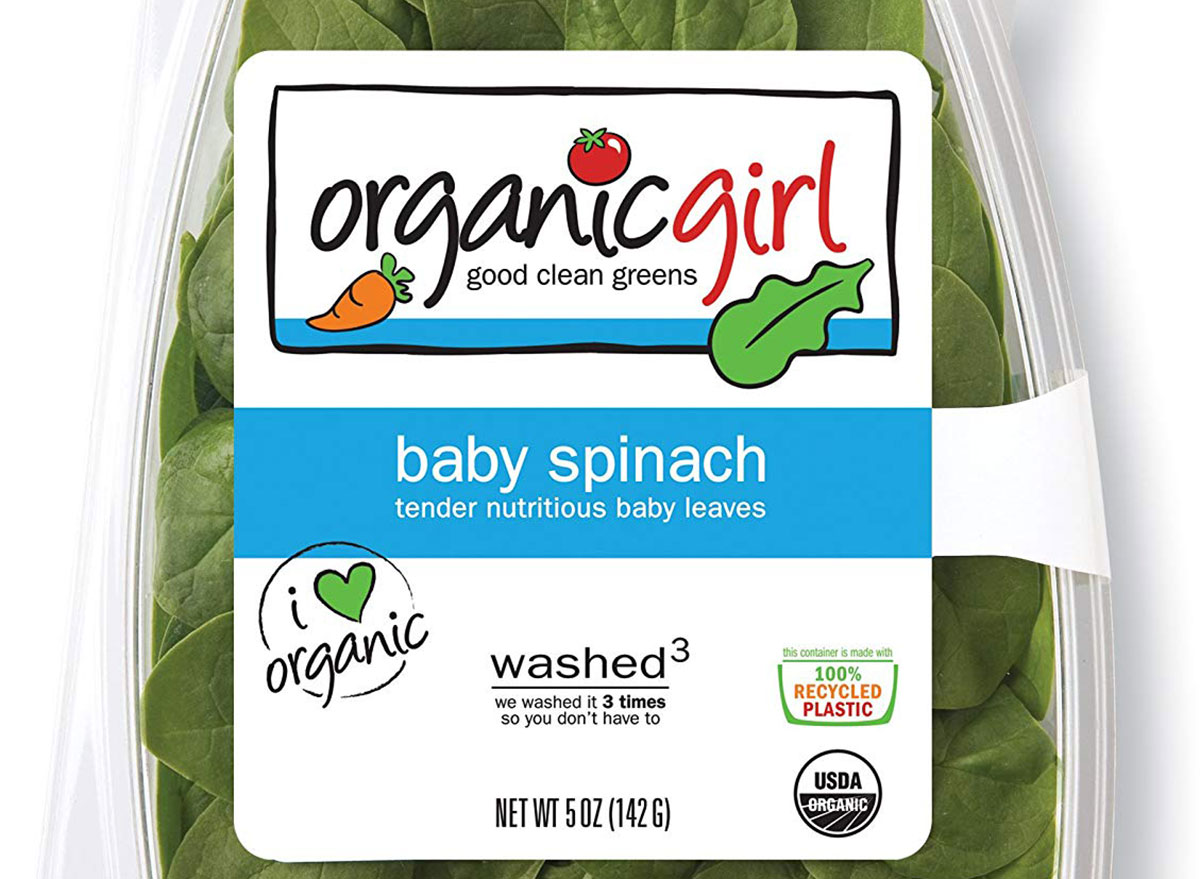
Spinach is an excellent source of vitamins A, C, and K, folate, and manganese, and it's a good source of iron, potassium, riboflavin, magnesium, and chromium. The packaged variety is triple washed, which you don't have to wash again at home. Use it to make a vegetable salad, sauté it in olive oil, add it to omelets, rice, pasta dishes, or smoothies.
Organic Carrots
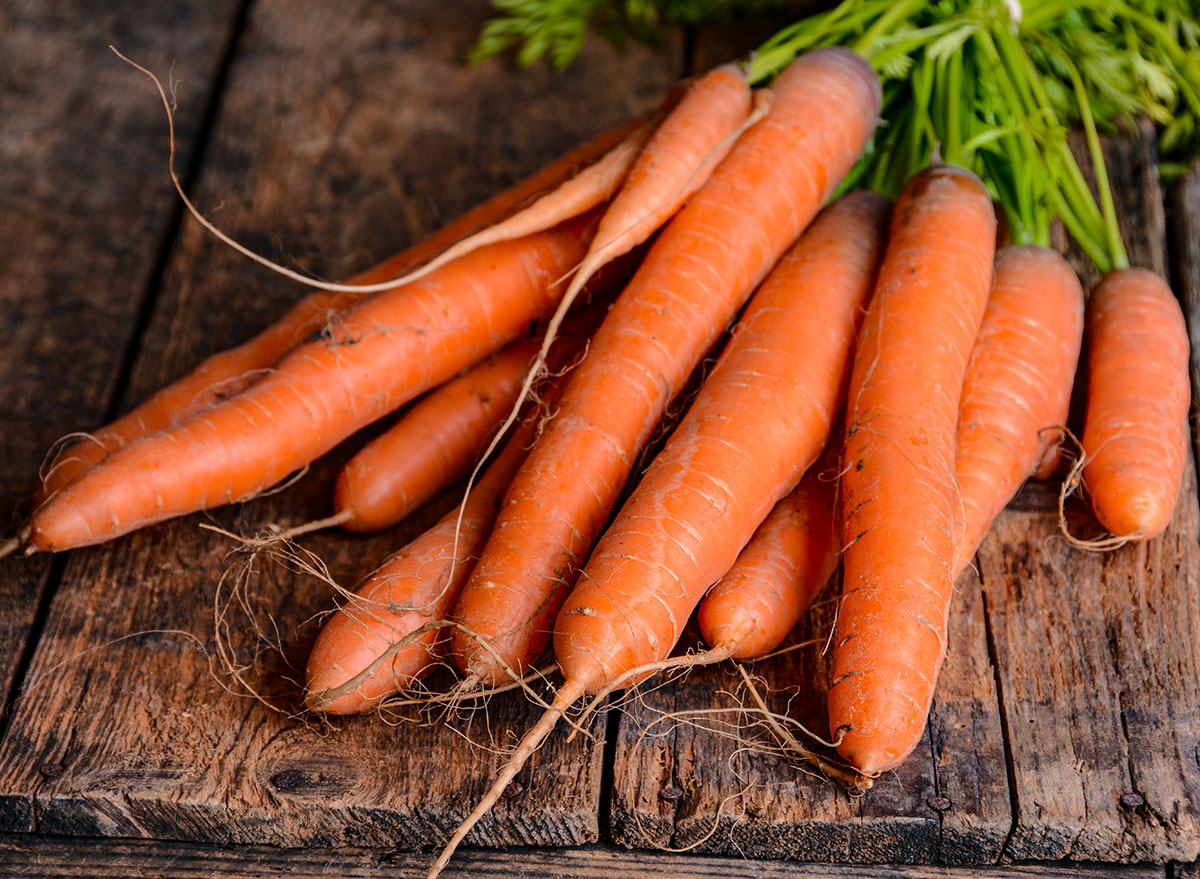
Carrots are filled with antioxidants, and that may be one reason why folks living around the Mediterranean Sea live longer! Carrots are an excellent source of beta-carotene, the antioxidant form of vitamin A, and they also provide fiber, vitamins C and K, and potassium. Carrots can be part of many Mediterranean dishes, from soups to stews to salads and cooked sides.
Fresh Strawberries
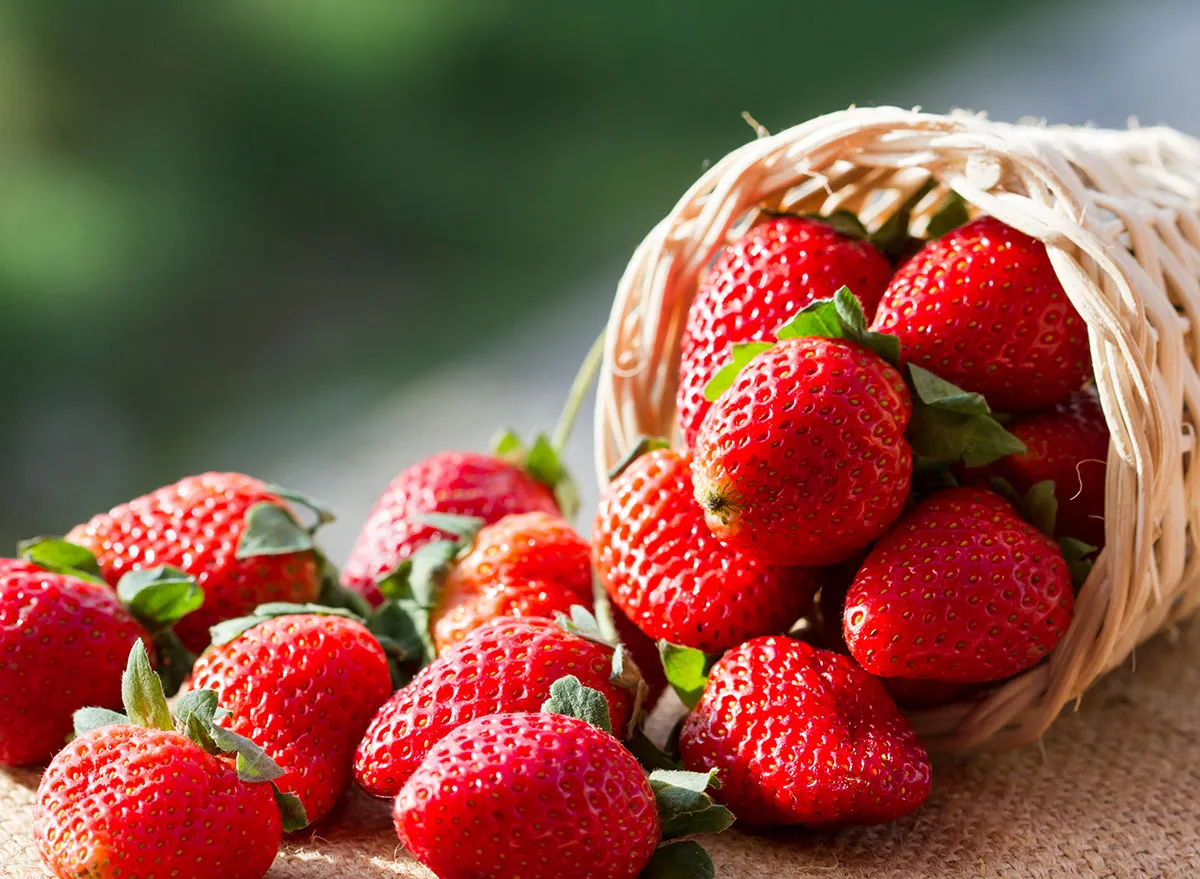
One cup of whole strawberries provides 140 percent of the recommended daily amount of the antioxidant vitamin C, which is actually more than an orange. It's also a good source of fiber, providing 12 percent of the daily recommended amount. Strawberries also provide folate and potassium. In the Mediterranean diet, you can enjoy a bowl of strawberries over Greek yogurt for breakfast or topped with freshly made whipped cream as dessert. You can also snack on fresh strawberries throughout the day or add them to your morning smoothie.
Sabra Classic Hummus
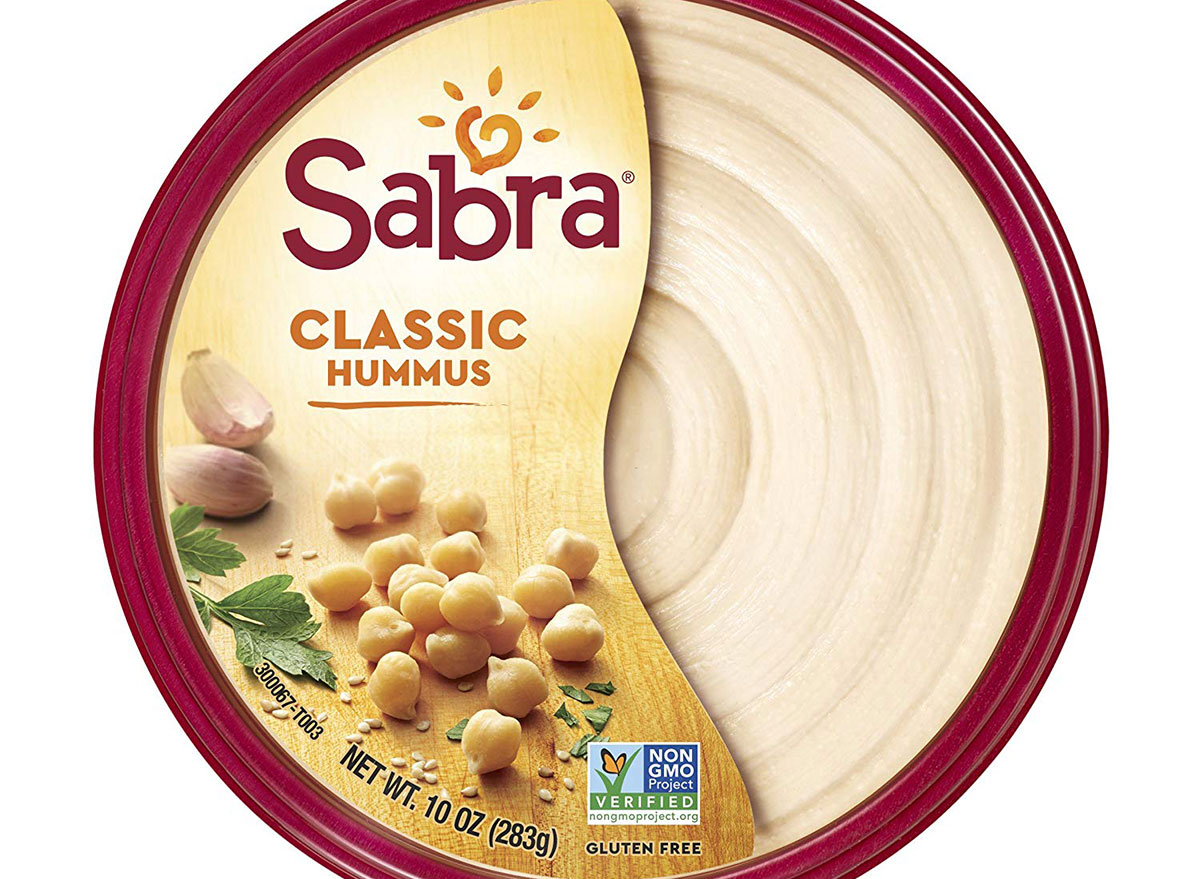
Hummus—made with pureed chickpeas, tahini, olive oil, and garlic—is a staple dish in the Mediterranean diet. You can easily whip up a batch or save time by purchasing a tub. Hummus is used to dip vegetables like carrots, celery, radishes, peppers, and other vegetables, but it can also be used as a condiment for egg, chicken, or turkey sandwiches.
Roma Tomatoes
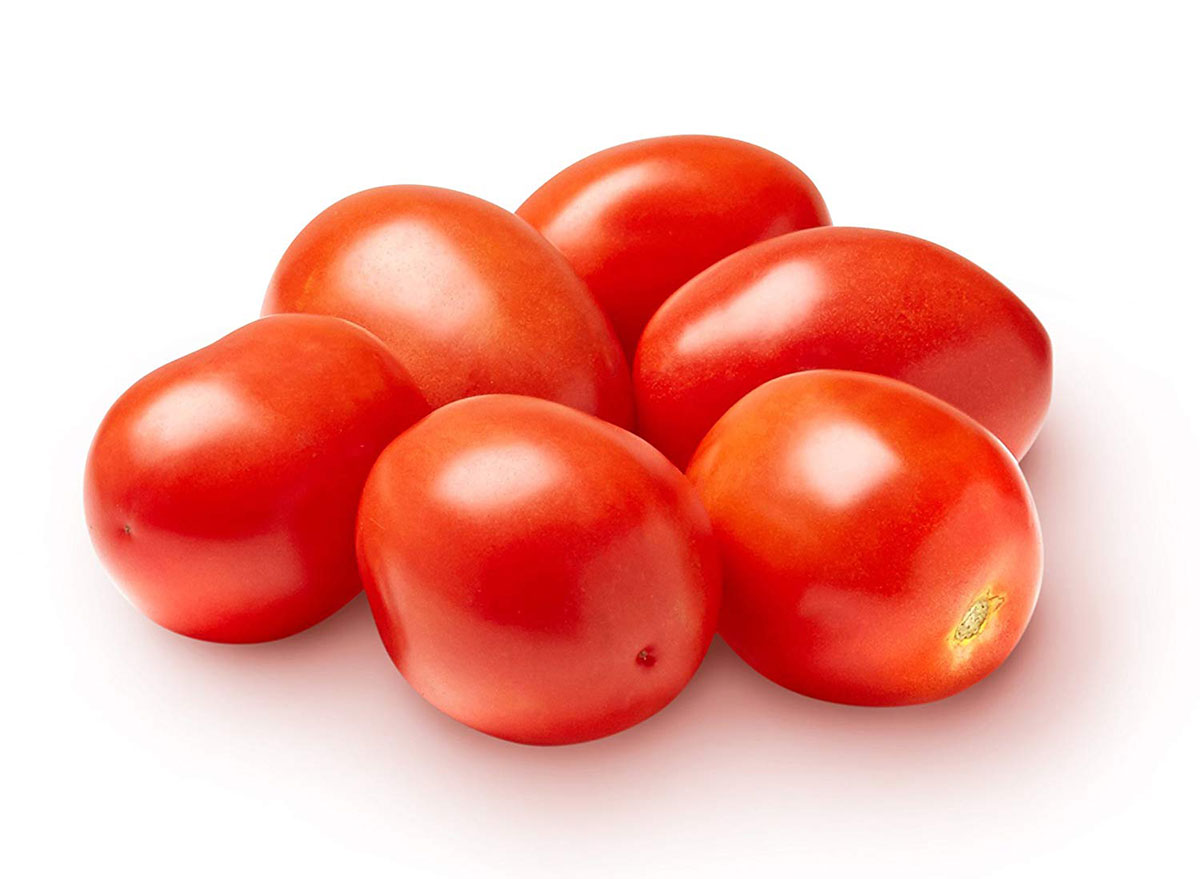
Tomatoes are certainly a commonly eaten vegetable in the Mediterranean diet. There are many varieties available, but the Roma tomatoes have minimal seeds, which is nice for salads and sauces.
365 Everyday Value, Organic White Quinoa
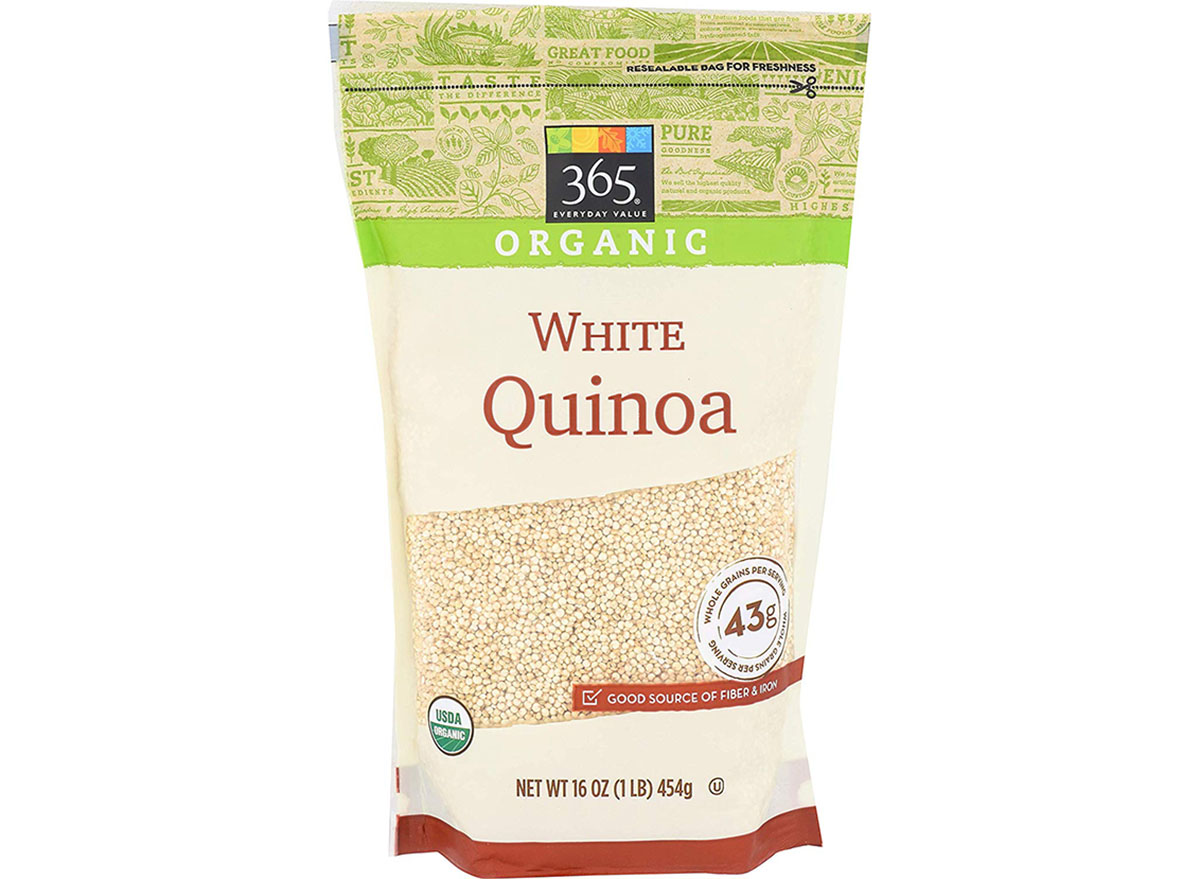
This gluten-free grain is actually categorized as a seed, but it has similar characteristics and preparation methods to most grains. Besides offering fiber and protein, it also provides hefty amounts of thiamin, vitamin B6, folate, zinc, potassium, magnesium, selenium, and iron. In Mediterranean cooking, quinoa can be used anywhere you find brown rice, and it takes only 15 minutes to cook.
Ozery Bakery Organic Spelt Lavash Crackers, 4-Count ( PACK OF 3)
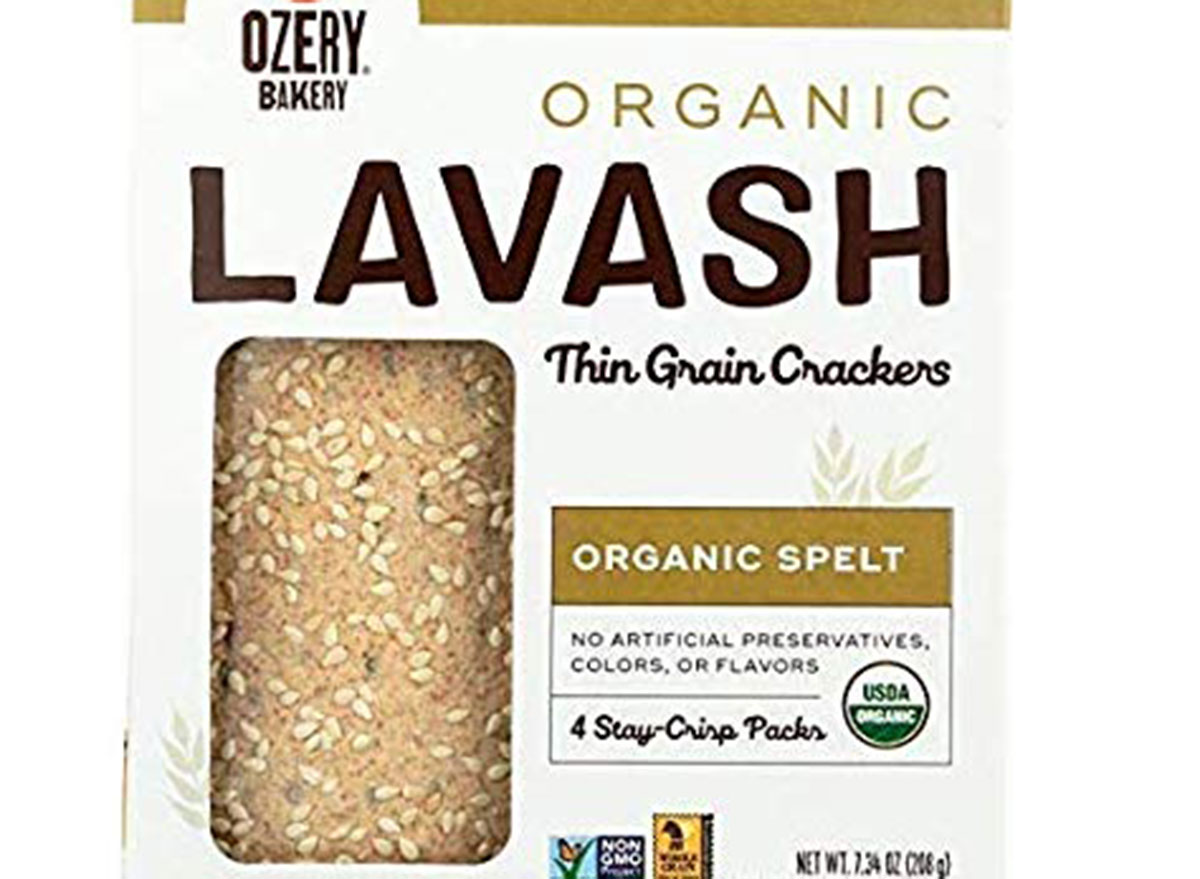
These thin crackers are made from spelt, an ancient grain that has a milder flavor than other grains. It also has a healthy dose of fiber and protein to help keep you feeling full. Serve at breakfast with cheese and jam, or as a snack with hummus and vegetables.
365 Everyday Value, Organic Green Lentils
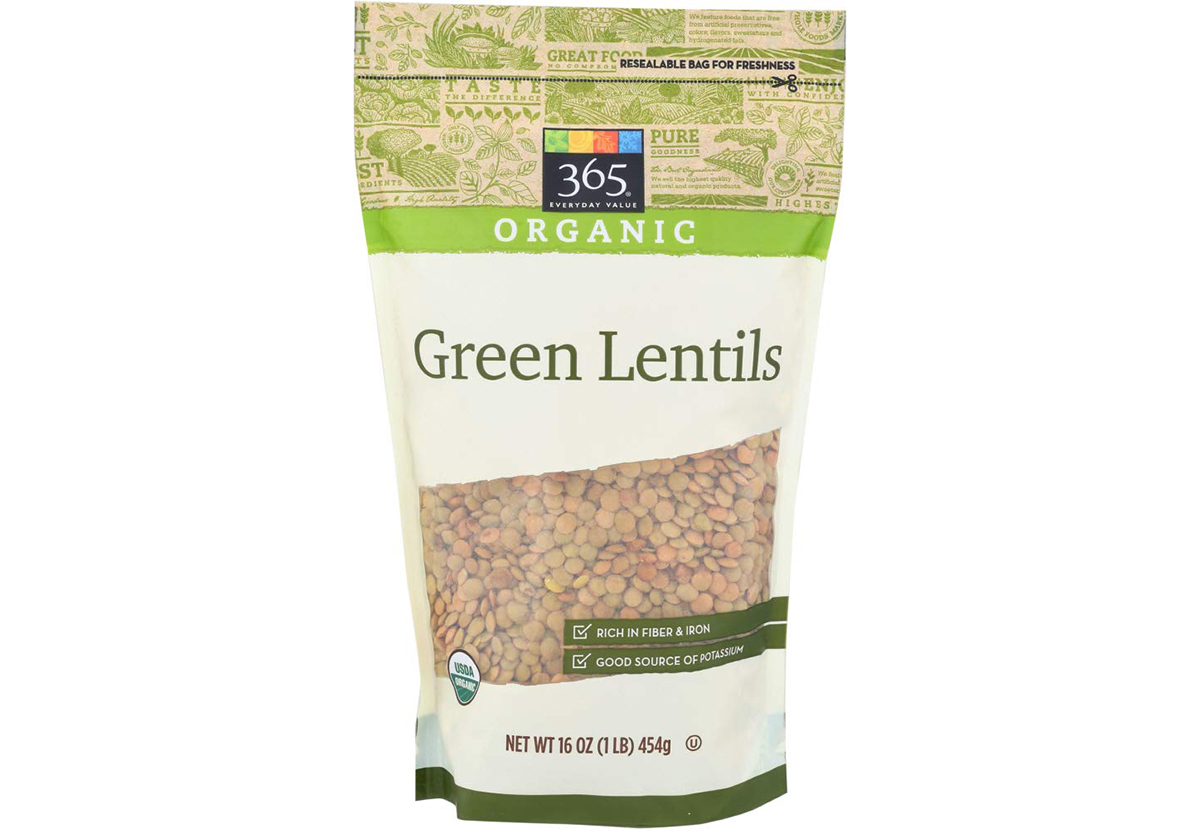
Lentils are packed with fiber and protein, along with numerous energy-producing B-vitamins, antioxidant vitamin C, iron, potassium, and magnesium. Lentils are part of many Mediterranean dishes, including rice dishes, salads, and soups, and they pair nicely with fish, lamb, and chicken.
365 Everyday Value, Organic Cannellini Beans, No Salt Added, 13.4 oz
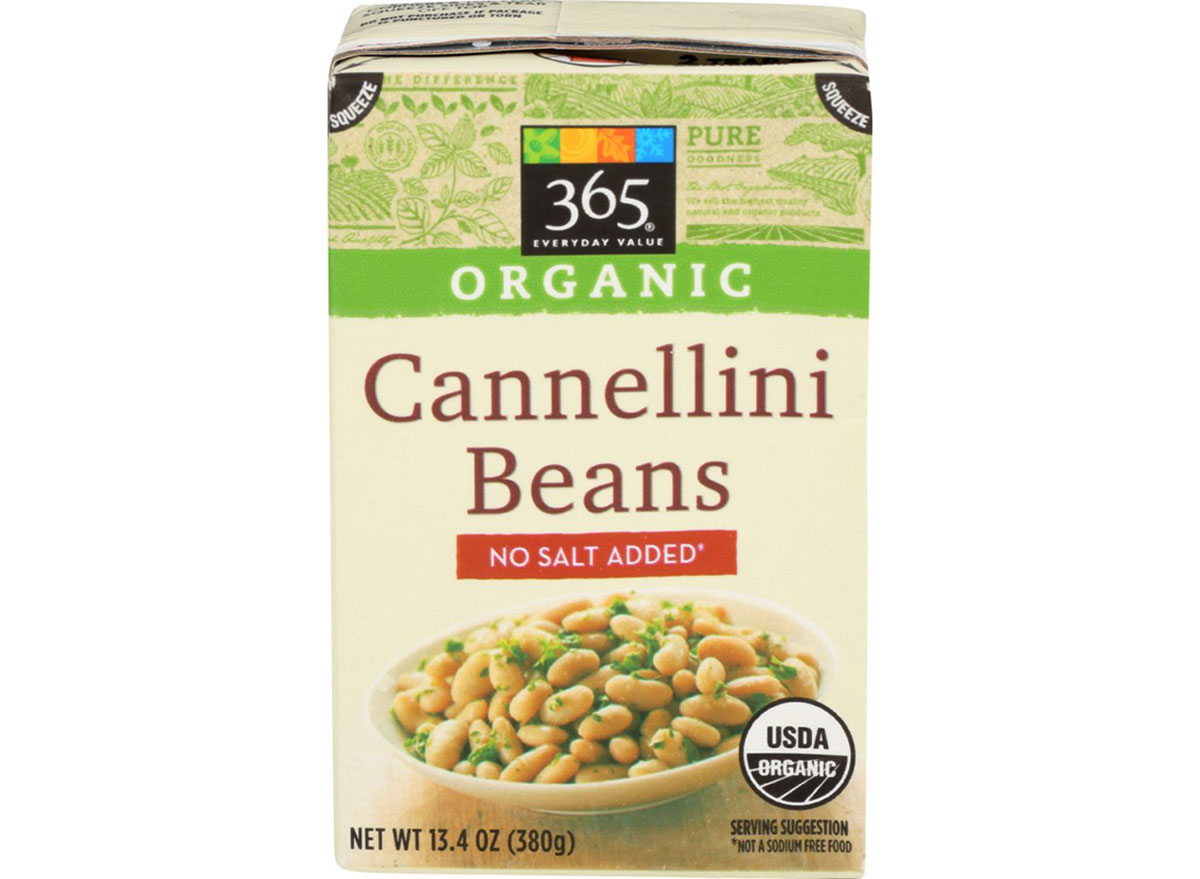
Beans are nutrition powerhouses and an important complex carbohydrate, which your brain uses for energy. Although you can opt for dry beans, canned or boxed pre-cooked beans can help save time. You can also find low-sodium and no-added-sodium varieties. If you do use a can with regular sodium, studies show that rinsing your beans can help reduce the sodium by up to 40 percent. In the Mediterranean diet, use beans in soups, stews, and salads, and incorporate into burgers, meatloaf, and rice dishes.
Dannon Oikos Greek Nonfat Yogurt, Plain, 32 Ounce Container Nonfat Greek Yogurt
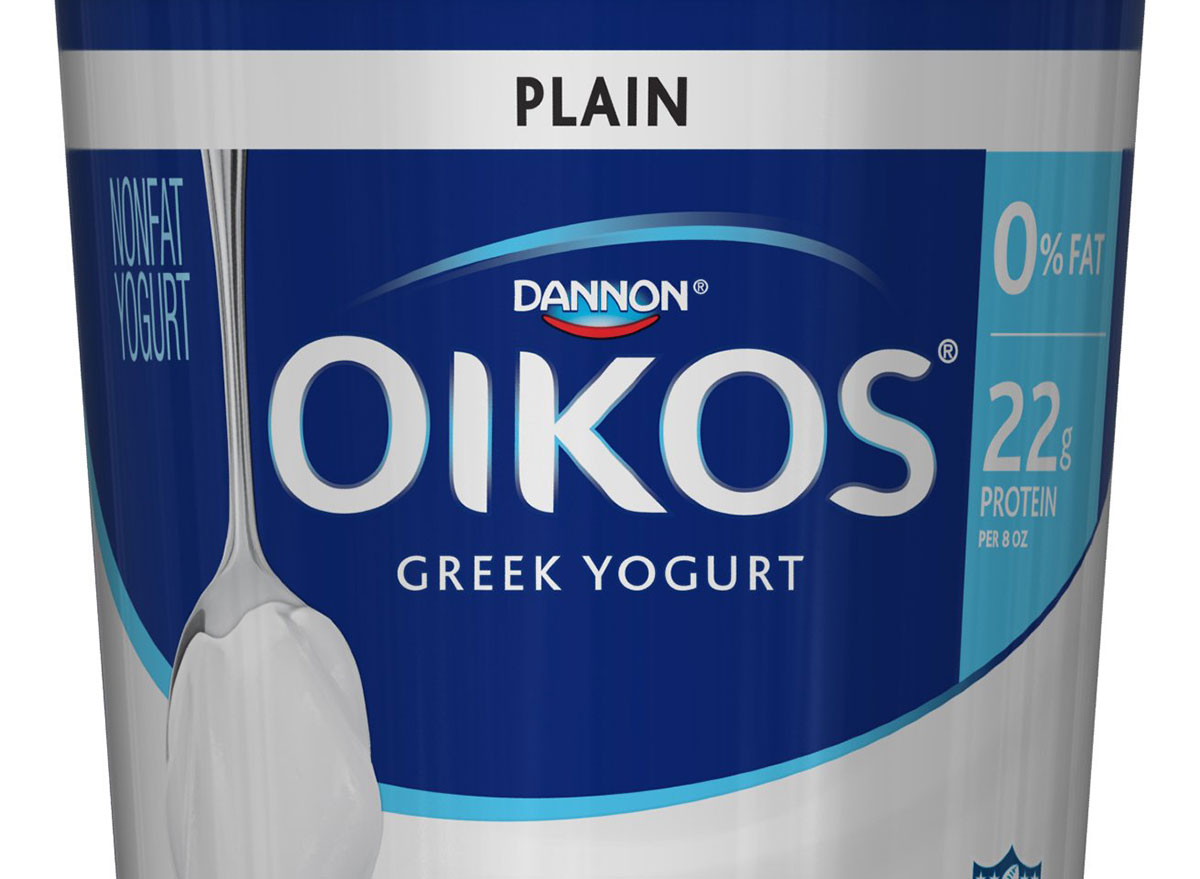
Throughout the Mediterranean diet, yogurt is one of the most prominent forms of dairy. Enjoy for breakfast in a parfait or smoothie, as a dip in tzatziki (a cucumber and yogurt dip), or topped with fresh dates and a drizzle of honey.
Just BARE All Natural Fresh Chicken, Hand-Trimmed, Boneless, Skinless Breast Fillets, 1.0 lb
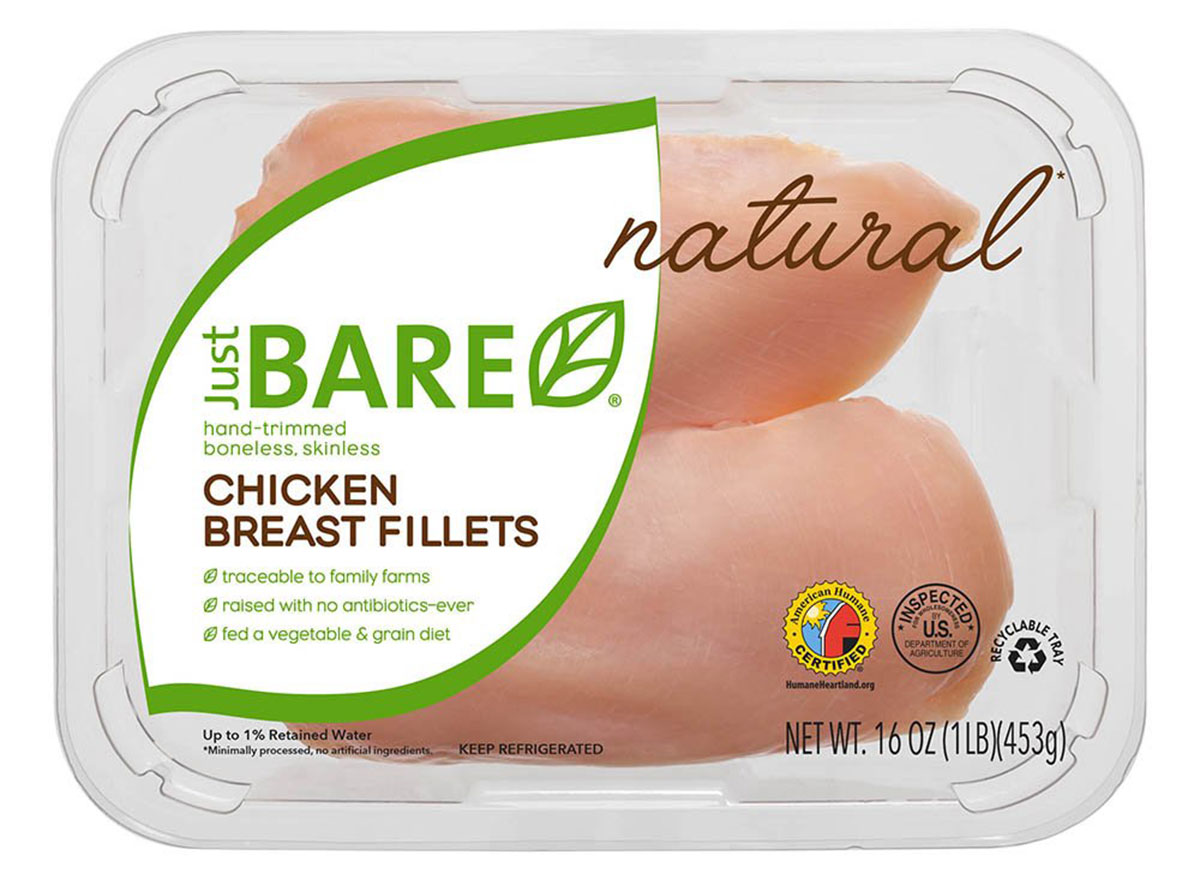
Skinless, boneless chicken breast is a lean cut of poultry and used in many classic Mediterranean dishes such as grilled chicken with a carrot-cabbage slaw or in a chicken and rice dish. It's an extremely versatile ingredient, so keep a few extra packets stashed in your fridge.
Blue Diamond Almonds, Raw Whole Natural, 40 Ounce
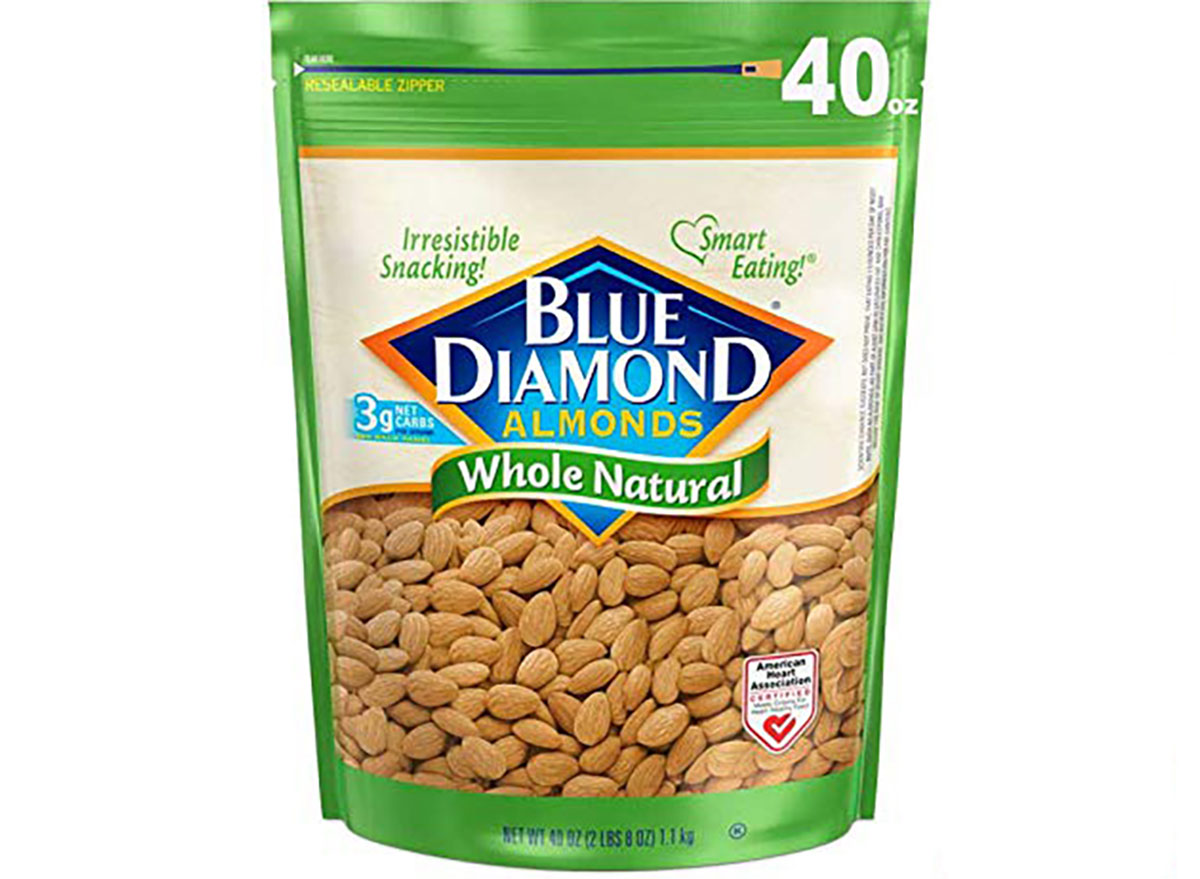
Nuts are a big part of the Mediterranean diet. Almonds are an excellent source of the antioxidant vitamin E, and a good source of fiber, riboflavin, magnesium, phosphorus, and copper. These nuts also contain the flavonoids quercetin and kaempferol, which may help prevent the grown of cancer and decrease the risk of heart disease. On the Mediterranean diet, enjoy nuts chopped over hot or cold cereal or yogurt, or as a snack with dates and cheese.
